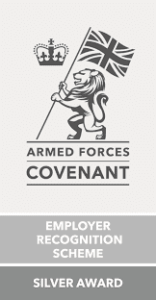Are you curious about how the world works, the relationship between humans and the environment, and the complex systems that shape our planet? The A Level Geography course at Central Saint Michael’s explores global issues, the dynamics of human-environment interactions, and the physical processes that influence landscapes and societies. Key topics include climate change, urbanisation, economic development, and the impact of natural hazards.
Although a GCSE in Geography can be helpful, it is not a requirement. The course introduces fundamental geographical concepts from the beginning, making it accessible to all motivated learners, regardless of their prior experience in the subject. You will engage with a range of case studies, fieldwork, and theoretical frameworks to develop a deep understanding of geographical processes and issues.
This is a challenging and rewarding subject that encourages critical thinking, analytical skills, and problem-solving. You will be expected to engage with complex global issues and evaluate the implications of human actions on the planet’s future. The course promotes both independent study and collaborative learning, allowing students to develop the skills necessary to succeed in higher education and beyond.
Content Overview
Year 1
Paper 1 – Physical Geography: Explore natural physical systems and how they interact with human activity.
Topics include:
- Tectonic Hazards: Understand the causes, impacts, and management of earthquakes, volcanoes, and tsunamis
- Weather and Climate Hazards: Examine the atmospheric processes behind tropical storms and extreme weather in the UK
- Coastal Landscapes: Learn about coastal processes, landforms, and how coastlines are managed
You will also study case studies, fieldwork skills, and geographical models.
Paper 2 – Human Geography: Focus on how human activities shape the world and respond to physical and social challenges.
Topics include:
- Changing Places: Investigate how people perceive and experience places, and how places change over time
- Global Systems and Global Governance: Explore international interdependence, trade, and climate governance
- Contemporary Urban Environments: Study urban growth, sustainability, and challenges like pollution and housing
You will also gain fieldwork and data interpretation skills.
Year 2
Paper 1 – Physical Geography and Fieldwork:
Builds on Year 1 topics and introduces:
- Water and Carbon Cycles: Investigate the flows and stores in Earth’s critical systems and their role in climate change
- Continued development of coastal systems, hazards, and fieldwork-based enquiry skills
Paper 2 – Human Geography and Fieldwork:
Continues from Year 1 and adds depth through:
- Population and the Environment or Resource Security (optional topics): Apply geographical knowledge to pressing global issues
- Greater focus on sustainability, development and inequalities
Paper 3 – Geographical Skills and Independent Investigation:
- Geographical Skills: Apply quantitative and qualitative skills to unseen resources and real-world scenarios
- NEA (Non-Exam Assessment): A 3,000–4,000-word independent investigation based on fieldwork – a chance to explore a topic of personal interest in depth
- Synoptic Skills: Apply knowledge across physical and human geography, considering key themes like systems, scale and interdependence.
Facilities
You will have access to online mapping tools and fieldwork equipment including GPS devices, soil testing kits and river flow meters for practical outdoor investigations.














